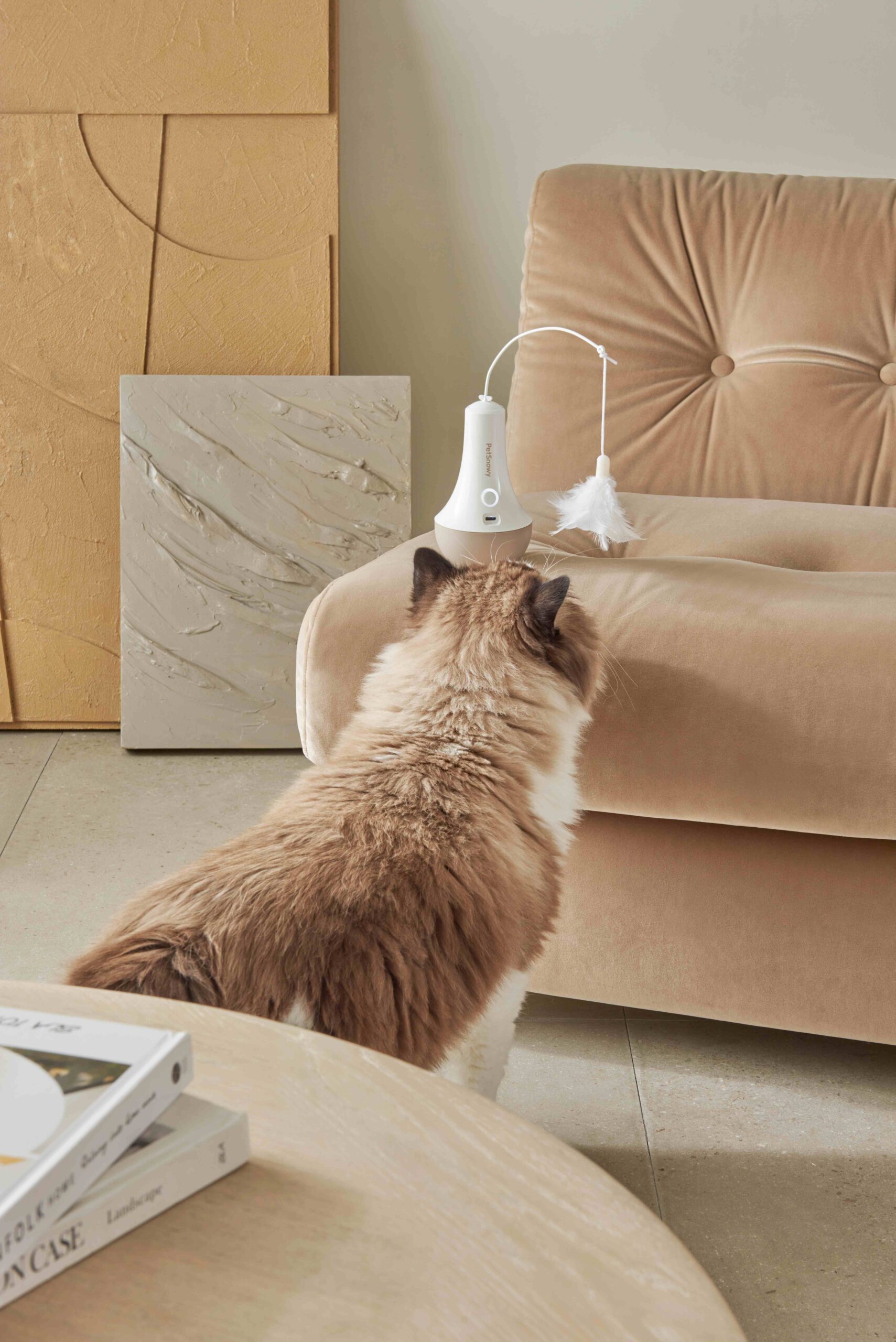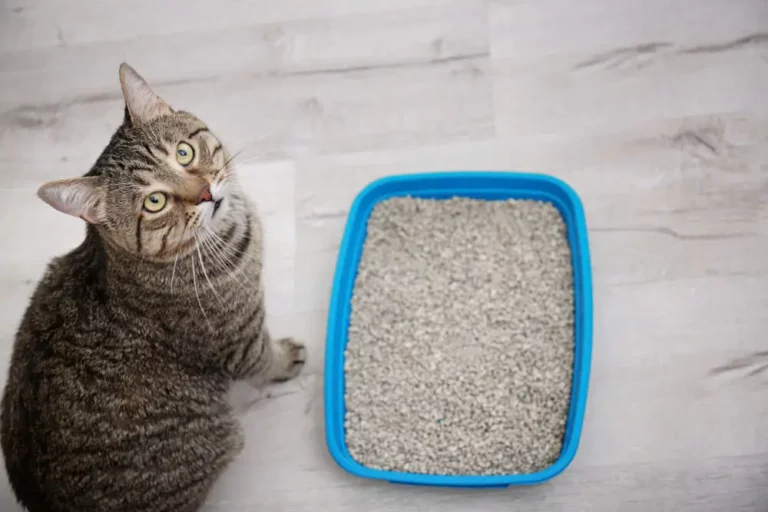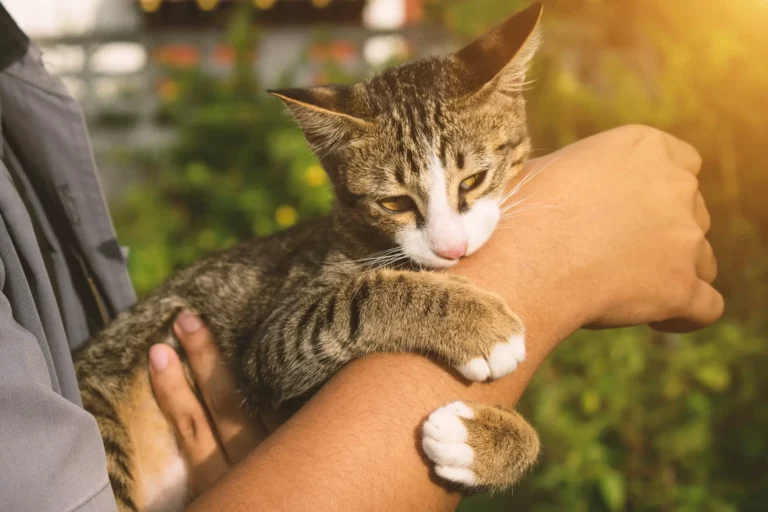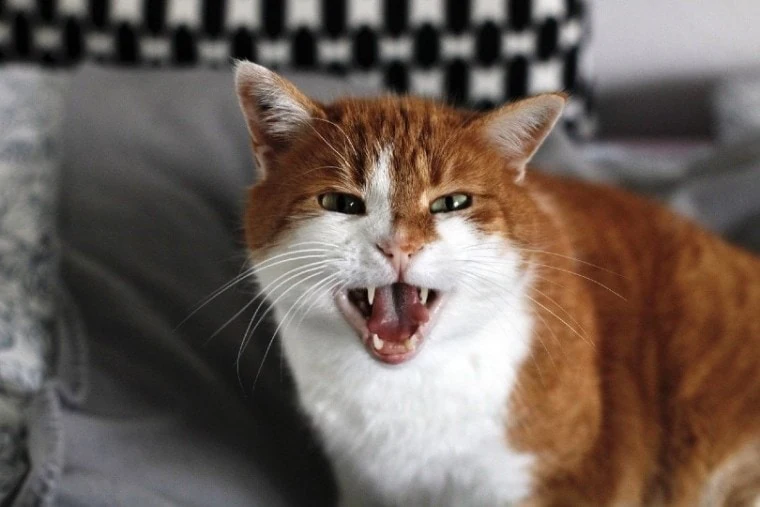Why Does My Cat Meow In The Bathroom? (6 Reasons & How To Stop It!)
Have you ever wondered why your cat meows in the bathroom?
Cats meow in the bathroom for a number of reasons, including attention-seeking, territorial marking, or a medical issue. This could also be expressing hunger, curiosity, or trying to communicate something to you.
Cats may also be drawn to the sound of running water or other noises coming from the bathroom, which could explain their persistent meowing when they enter. Alternatively, your cat could simply feel more secure in an enclosed room such as the bathroom, and wants attention from you.
If your cat’s bathroom meowing continues or worsens over time, be sure to take them to the vet for a check-up.
It’s a behavior that can be puzzling and frustrating. Let’s look at the five reasons why your cat meows when they are in the bathroom in more detail, and what you can do to stop the noise.
Key takeaways
Cats may meow in the bathroom due to the echo effect, which they may find stimulating.
The bathroom’s different smells and sounds can intrigue cats.
Some cats associate bathrooms with attention or fun playtimes.
Cats may become anxious when owners are inaccessible in bathrooms.
Unusual or excessive meowing could indicate a health concern and require a vet’s attention.
Why Does My Cat Meow in the Bathroom? 6 Reasons Explained!
No products found.
1. Understanding Your Cat’s Acoustic Fascination: The Bathroom Echo Effect
Cats are often drawn to unique sensory experiences and the echo effect in the bathroom is one of them. The bathroom usually has hard, smooth surfaces like tile or porcelain, which cause sounds to bounce around and create an echo.
When a cat meows in such an environment, the sound of their own voice is reflected back to them, and this echo can be interesting or stimulating to the cat. It’s akin to providing them with a new form of auditory feedback, and some cats may meow more just to experiment with the resultant echoes.
2. Separation Anxiety
Cats who experience separation anxiety might vocalize in the bathroom as a way of expressing their distress. Separation anxiety is triggered by feelings of insecurity or abandonment, often caused by changes to routine, such as if the cat’s owner works long hours and isn’t home much.
If your cat exhibits signs of distress, such as crying, meowing or other disruptive behaviors, when you leave the house, this could be why they cry in the bathroom.
3. Playing in the Shower or Bathtub
Cats are inquisitive and often love to play, so if your cat’s cries sound like playful meows, it’s likely that they are just interacting with the running water in the shower.
If this is the case, you might try to keep your bathroom doors shut since it may help prevent access to the shower or bathtub. Additionally, you can provide interactive toys or activities, such as puzzle feeders or scratch posts, that will keep your cat occupied while you’re away or in the bathroom.
4. Medical Reasons
In some cases, cats can cry or meow in the bathroom due to a medical issue. Kidney issues, urinary tract infections (UTIs), and other illnesses can cause cats to display distress signals.
If your cat’s cries sound more pitiful and less like playful meows, it could be due to an underlying illness or injury that needs attention from a veterinarian. Have your cat medically checked for any medical conditions that might be causing their cries.
5. Fear or Stress
Stress and fear can cause cats to meow. For example, if your cat associates the sound of running water with baths or medical procedures due to past experiences, they may be expressing their unease by crying in the bathroom.
To help reduce their stress levels, provide opportunities for them to explore their environment without feeling overwhelmed by providing access to quiet hiding spots in the bathroom.
6. Looking for Attention
Cats may be meowing in the bathroom for attention. If you have noticed that your cat is always vocalizing when you are in the bathroom, this could be an indication that they want to spend time with you.
The best way to handle this is to spend extra time playing with your cat, or providing them with interactive toys such as feather wands, chasing wands and tunnels. That way they don’t become dependent on using crying as a way of getting attention from you.

Now that we’ve explored some of the main reasons why cats meow in the bathroom, let’s look at ways to stop or prevent this from happening.
How to Stop a Cat Meowing in the Bathroom
If your cat keeps meowing in the bathroom, you are probably frustrated. Fortunately, there are some simple steps you can take to discourage your cat from being noisy in the bathroom. Learn how to stop a cat meowing in the bathroom with this helpful guide.
1. Identify It Is an Attention-Seeking Behavior
Before you can effectively stop a cat meowing in the bathroom, you need to identify whether the behavior is intentional or not.
In some cases, your cat may be meowing out of discomfort or anxiety, usually due to an underlying medical issue. If this is the cause, it’s important that you talk to your vet about any potential health issues your pet might have.
But if it isn’t for any physical reason, then chances are that your cat is engaging in attention-seeking behavior. A sure way to address this is by playing and interacting with you cat. Everyone (and thing) needs some loving from time to time.
2. Redirect Your Cat’s Attention
One of the best ways to stop a cat meowing in the bathroom is to distract them with something else. To do this, you can offer treats or toys that your cat finds intriguing, such as scratching posts or cardboard boxes.
If possible, move these items closer to where your cat usually meows and encourage them to focus on them instead of their meowing behavior.
3. Seek Medical Treatment If Necessary
If your cat’s meowing behavior doesn’t improve with distractions and other home remedies, take them to the vet to check if there are any medical reasons behind their behavior.
The vet may recommend certain medications or treatments that can help ease their stress levels, reduce the meowing, and restore a more peaceful environment in your bathroom.
4. Place a Repellent Spray in the Bathroom
You can use a pet repellent spray to keep your cat from entering the bathroom. Certainly not my preferred choice but it’s an option.
Spray it around the edges of doorways and windowsills, as well as directly on your cat when they enter the room. This should deter their meowing behavior, as many cats dislike any kind of repellent spray.
Another helpful tip is to make sure you fill a water bowl outside of the bathroom so that they don’t need to venture in for hydration.
5. Use Positive Reinforcement and Rewards to Train Your Cat Not to Meow in the Bathroom
Positive reinforcement and rewards can be used to encourage your cat to meow less in the bathroom.
When they stay away from the bathroom, give them treats or verbal praise to show them that it’s a desirable behavior.
You may also want to cover the entrance of the bathroom with a tall gate so that they cannot access it, as this can prevent their meowing behavior altogether.
Final Thoughts on Why Does My Cat Meow in the Bathroom
Cats do peculiar things, and this is no exception. It could be a sign of loneliness, hunger, boredom, or anxiety.
No products found.
Make sure to figure out what is causing the behavior so that you can address it.
Keep in mind to never scold your cat and reach out to a veterinarian if you have any concerns about your kitty or their behavior.
Thanks for reading! If you have any other thoughts on this topic, please don’t hesitate to comment below!







